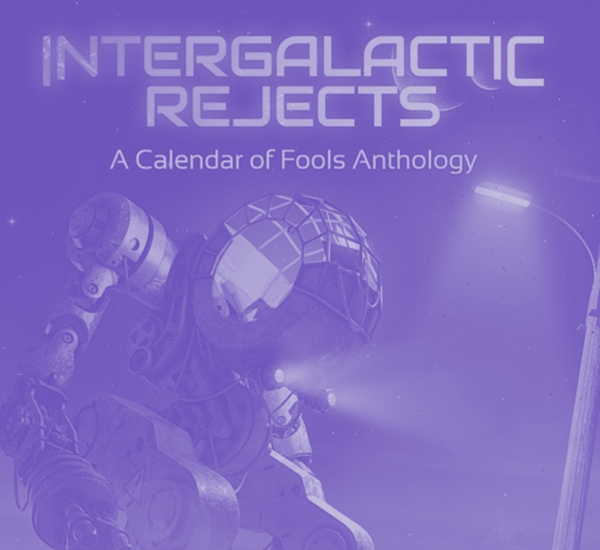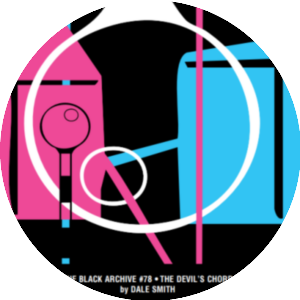Inspiration
I mentioned in the article on writing About a Girl for Tales of the City that the idea for that story came out of research I’d done on Kurt Cobain for something else. Now just twelve years later, I can finally tell you that something else was Boddah. A writer friend had approached me looking for stories about replicated celebrities for an anthology he wanted to publish, and having just read Heavier than Heaven Kurt Cobain seemed like the perfect one. My writer friend agreed, and so I went away to come up with a suitable story.
Getting the Story
The original spark was the idea of Kurt’s childhood imaginary friend Boddah, who he also ended up addressing his suicide note to. The idea that somebody trying to recreate Kurt might end up haunted not just by him but by his imaginary friend felt like something, and this was where I also came up with the central theme of what it must be like to carry on a life that someone had tried to escape, which then made its way into About a Girl when Boddah ended up going nowhere. Because it did: I finished the story and both I and my friend were very happy with it, but publishing an anthology is a lot of work, and after a year or two it became clear that it wasn’t going to happen. Boddah had kind of been adapted anyway into About a Girl, and there wasn’t an obvious place for it to go back then. So, it went into a drawer, getting remembered fondly but ultimately as a thing whose time had passed.
I moved on, and Boddah stayed left behind.
The Pitch
But then in 2020, I decided that it was time I made a concerted effort to get more short stories published, away from the world of Doctor Who. I liked short stories, people thought I was good at them, and they didn’t take up as much time as other things: I could write a short story between other things, and there were a growing number of places I could try to get them published. I didn’t go back to Boddah immediately, but it was always in the back of my mind that I would, eventually. I finally pulled it out of its drawer in 2022 and reread it. The main beats were still good, still what I wanted the story to say, but as you’d expect from something I’d written a decade ago, I wanted to try again. I went for a page one re-write, and deliberately didn’t do any more research about Kurt Cobain: I wanted the biography that made it into the story to be the stuff that had stuck in my head in the hope that it would make the story less like a lecture and more accessible. There were also some bits that I thought didn’t work, such as a meeting between Kurt’s reanimated remnant and Courtney Love that frankly crossed the line into poor taste.
I left the reworked version to stew for a little while, but I still thought it was good. I put it into rotation around the places I send my stories: Escape Pod, Clarkesworld,
Asimovs, and a number of other places. Slowly, they all said no: not everyone gave feedback on it, but those that did all seemed to agree that the reader needed too much familiarity with Kurt’s life to really get anything out of the story. Every time I sent it off, I would look at it again, and every time I would disagree: aside from Boddah - who gets explained in the story, more or less - everything else I mentioned about Kurt I thought was in the realm of common knowledge: he was, after all, one of the most famous singers in the world, more so now than ever. But still it would come back, rejected.
On the day Boddah got sent back by the last place on my list, I saw a call for submissions from a bunch of people called Calendar of Fools. They were creating an anthology called “Intergalactic Rejects” where the only linking theme was that the stories they chose had to be SF/F stories that had been rejected at least three times by other publishers. They had stories by people like Samuel R. Delany, Robert J. Sawyer, Kevin J. Anderson & Rebecca Moesta and several others ready to go, but had committed to taking eight additional stories from open submissions. “Well boy have I got a story that’s been rejected” I thought, jotted down the long number of places that had passed on Boddah and sent it along.
I absolutely loved your story “Boddah”. It was one of the first stories in the pile, and I never stopped thinking about it through our entire reading period, and I want a story with that kind of staying power in this book.
Editorial
The editorial process was a lot simpler and easier than it could have been: the bulk of the editing was done in one sweep to tidy up the format of the words rather than their context, and in some cases switch British English for American. That seemed fitting, though, as the story was being written from an American’s Point of View. There were a couple of things that took a bit more work, where the editor - Storm Humbert - made some suggested changes that if I’d wanted, I could have accepted and moved on from, but they didn’t quite feel like my voice, so I tweaked them a bit and everyone was happy. The main issues were whether or not Americans say, “I could care less” or the more grammatically correct “I couldn’t care less”, and satisfying Storm’s curiosity about who the other remnants in the story were intended to be.
What the story did also get - for the first time since The Many Hands for me - was a separate proofread, which was very exciting: somebody going through a document specifically looking for errors - rather than how the story works - is an additional expense a lot of publishers have given up on, but it is always going to make the story better. On this occasion, the proofreader highlighted one of the sentences I’d written that wasn’t as clear as I’d thought, and both Storm and myself had missed it because we’d been carried along by the feel of the words, not their meaning. I got the chance to reword the correction so that the original intention was clear, meaning no-one else would get confused by my clumsiness.
On the whole, the editorial experience just highlighted the truth of the collection’s message: there was nothing properly wrong with Boddah as a story that had caused it to get rejected. It just hadn’t got put in front of the right person yet.
This message came from the first editorial request - 200 words on the rejection history of our stories. My version came back with a couple of alterations, and the addition of a clearer, neater moral: keep submitting your stuff and eventually you’ll find someone who likes it. This is a perfectly good lesson to take from the story of this story, and certainly one that fits the idea of Intergalactic Rejects. But the more I think about it, the more I think it’s not quite the lesson I want you to take from it.
In the weeks after Boddah got accepted for this collection, I had two more short stories - stories I think are just as good - rejected by multiple editors. The same ones who rejected Boddah, in fact. That’s just how it is. Rejection is something that happens to anyone who takes the risk of sending stories out into the world, and the fact that some of them get accepted eventually doesn’t protect you from it. Being in Intergalactic Rejects doesn’t mean that Boddah was always good enough and those other editors were wrong. Because whether a story is good enough is only a tiny part of whether someone likes it: let’s be honest, “technically good enough” isn’t that hard a bar for someone to get over, and there are plenty of places you can go to learn how. But a story connecting with an editor, and feeling like it will connect with their audience, and feeling like it fits with the other stories they’ve got? In some ways, that’s kind of arbitrary, and almost completely out of your control. If you’re going to be a writer, you have to find a way to be ok with that—to keep sending the stories out regardless. That’s the moral of Boddah’s acceptance, if there is one.
As a writer, you get told that rejection is just a fact of life, and all the ways that you can mess up your reputation by dealing with it badly. That’s true. I do not want to give you any other impression than that. But I can understand how it happens - how some writer who is good enough to get the words “we’d love to see something else by you” in their rejections but otherwise has to guess at why this particular story isn’t right can snap and do something ill- advised. I would love to tell you “you get used to rejection”, but you don’t, not really. In some ways it gets worse: I cannot see the difference between my stories that get accepted and those that get rejected, and coping with knowing that sometimes I can write a story that an editor likes and sometimes I can’t but have no idea why? Well, like the old adage goes - that’s what they pay me for: the fun bit I do for free.
What Happened Next?
But Boddah was accepted, and will be published in a book that means someway, somehow my name will now be linked to Samuel R. Delany’s. I can tell you for sure that “what happens next?” isn’t that I will never be rejected again, or even that any of those other stories I’ve written will have a chance of getting published in the future. But it does mean, for now, that sometimes my stories will get there, the long way ‘round. For now at least, I’ll keep trying: I have more ideas that I can hopefully turn into things that people want to publish, and a growing collection of ones I can give one last chance too if the opportunity arises.
The moral of this story isn’t “keep trying, you’ll get there one day” because I don’t believe there is a there to get to. Instead, it’s that if you want to do this, be realistic about what it’s like and ask yourself if you can cope with that. If you can’t, there are other options, and you shouldn’t feel bad about looking into them. I’m not going to tell you this way is only for certain kinds of people, because doing it this way doesn’t make me a better writer and I can’t promise you I’m going to keep this up forever. But for now I will, and if you can too I very much look forward to you telling me about your successes, and know that I know exactly how every one of your rejections feels.


